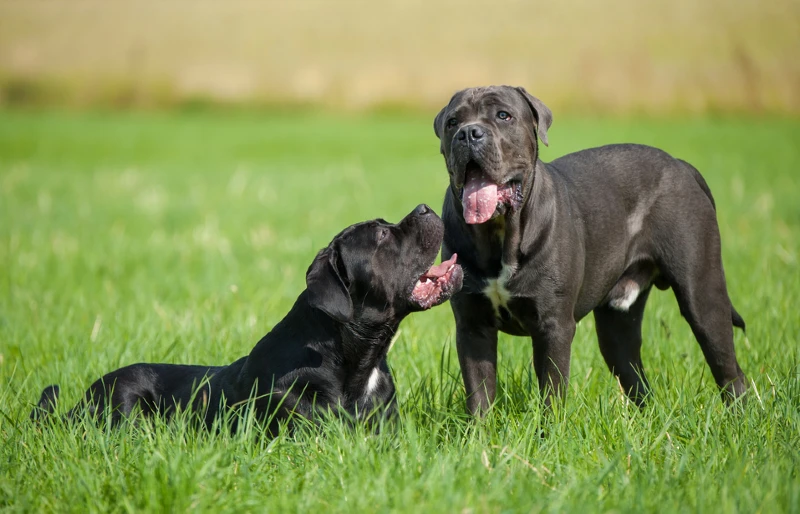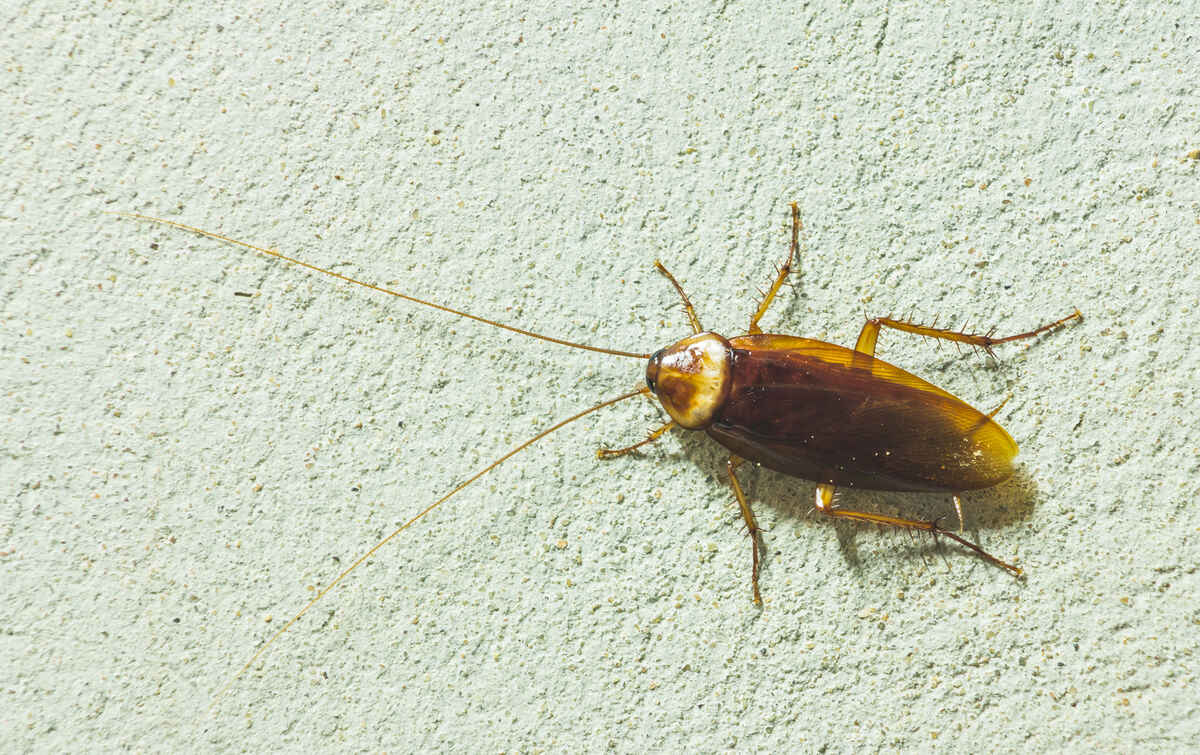Click to Skip Ahead
Cane Corso dogs are smart, affectionate, and assertive. These working dogs can grow to 110 pounds or more, making them part of the “large breed” category. Because they are a large breed, Cane Corsi will live shorter lives than their small dog counterparts, their average lifespan is between 9 and 12 years.
Keep reading to learn about the average lifespan of these wonderful family companions and to find out what factors play a part in the breed’s longevity.
What’s the Average Lifespan of a Cane Corso?
The average Cane Corso lifespan is between 9 and 12 years, which is average for a large-sized breed. However, one study from 2017 found that the median lifespan of this breed is 9.29 years1. This study also suggests that there may be a correlation between lifespan and color.
The research shows that black brindle and brindle Cane Corso dogs live longer (10.30 years and 10.13 years, respectively) than their fawn, grey brindle, black, and grey counterparts.
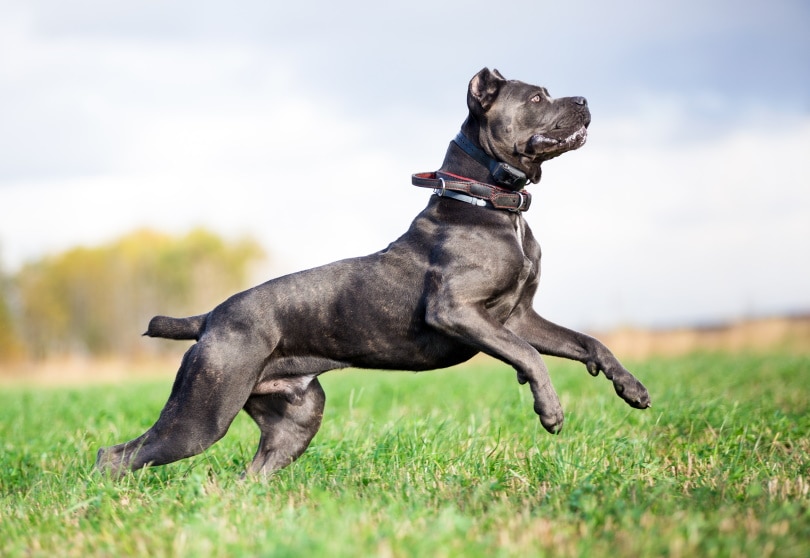
Why Do Some Cane Corso Live Longer Than Others?
Nutrition
Nutrition plays a huge role in the lifespan of a Cane Corso. Therefore, this large breed needs a high-quality, age-appropriate diet to meet its nutritional needs. A poor diet can cause serious repercussions such as obesity, pancreatitis, bladder stones, heart disease, and diarrhea.
Cane Corso dogs should only be fed a grain-free diet under the advice of a veterinary team. This is because grain-free diets may be linked to cases of non-hereditary dilated cardiomyopathy.
Environment and Conditions
A Cane Corso that lives in a well-maintained environment with humans that treat it right and care about its well-being will live much longer than one that lives in a dirty home with inadequate socialization.
Dogs living in conditions where they are often exposed to other dogs may be at risk of developing certain diseases or viruses, such as parasites, canine distemper, or dog flu.
Indoor/Outdoor Lifestyle
Cane Corsi need only moderate exercise, roughly two walks per day, to keep them in tip-top shape. They should always be kept on leashes to keep themselves and nearby humans and pets safe.
A Cane Corso should never be left outside on its own. This can not only lead to several bad habits, such as endless barking and destructive digging, but it can also cause hostility and aggression.
Size
Because Cane Corsi are a larger breed, they have a similar lifespan to other large breed dogs. Studies show that the bigger the dog is2, the faster it will age. The study also suggests that larger breeds die more often from cancer than their smaller counterparts. The researchers suppose this may be true because their accelerated growth may also be accompanied by abnormal cell growth.
Sex
No studies show whether female or male Cane Corsi live longer. Generally speaking, female dogs tend to live longer than their male counterparts3.
Genes
Cane Corsi are generally healthy as most reputable breeders will screen their dogs for common genetic health conditions before breeding them. That said, several health issues could impact the longevity or quality of life of a Cane Corso, including:
- Obesity
- Hip dysplasia
- Idiopathic epilepsy
- Demodectic mange
- Eyelid abnormalities
- Bloat
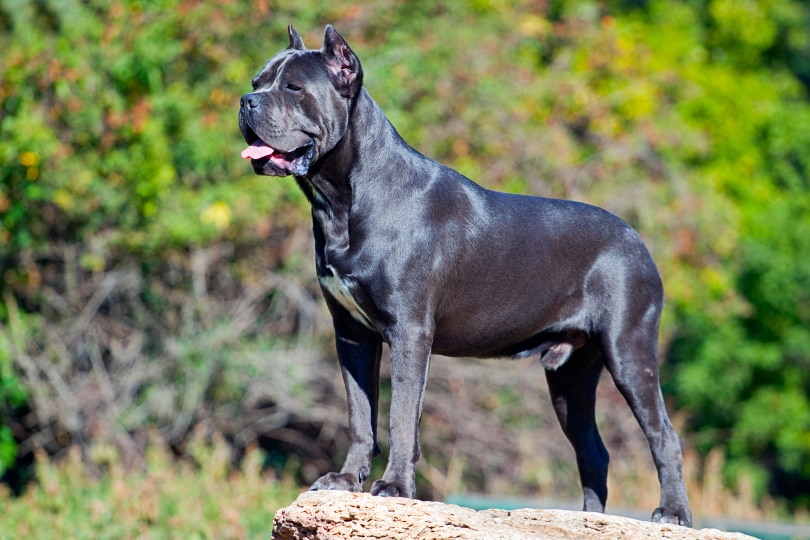
Neuter or Spay Status
There are a lot of benefits to neutering or spaying your Cane Corso. Twenty-three percent of spayed dogs Studies show than their unspayed counterparts. They are also less likely to develop certain types of cancer or pyometra, a potentially fatal uterine infection.
Neutered dogs won’t develop testicular cancer, which is relatively common in unaltered senior dogs. They are also less likely to exhibit aggressive behaviors and may get along better with other pets.
Healthcare
Regular trips to the vet are an absolute must for any pet in your care. This will provide your vet with a baseline they can then use to gauge your dog’s health in the future. If you have any concerns regarding your Cane Corso, its needs, or its health, be sure to bring it to your vet’s attention. The sooner you can catch any potential health conditions or diseases, the better.
The 4 Life Stages of a Cane Corso
1. Puppy (0–6 Months)

In the first 6 weeks of life, Cane Corsi puppies learn about social contact and play from their mom and littermates. So, it’s also important for breeders to handle the puppies in these first crucial weeks so they can learn to connect more with humans.
Cane Corsi pups grow much in the first 6 months of their lives. Males can be as heavy as 65 pounds and females 60 pounds by the time they turn 6 months old.
2. Junior (6–12 Months)
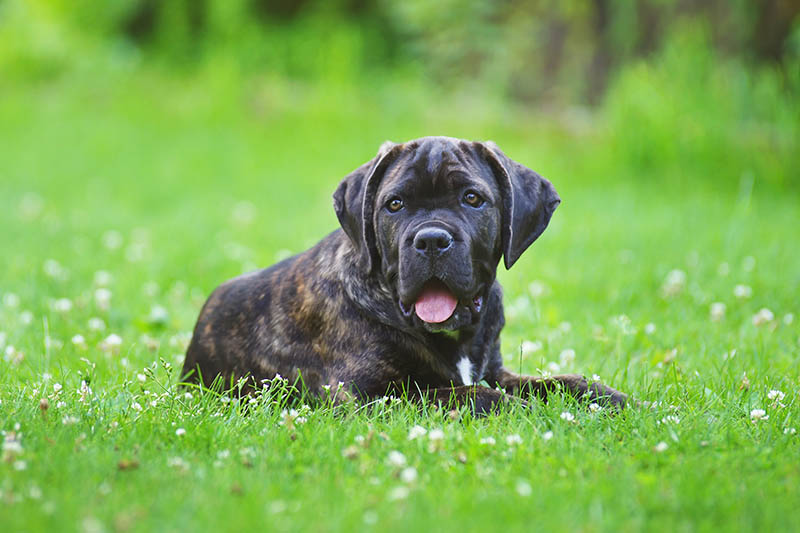
Cane Corsi will reach sexual maturity in this time frame and grow their thicker adult coats. It’s important to continue building on your dog’s confidence through training and socialization at this stage.
By their first birthday, male Cane Corso dogs can weigh up to 95 pounds, while females may tip the scales at 90 pounds.
3. Adult (1–7 Years)
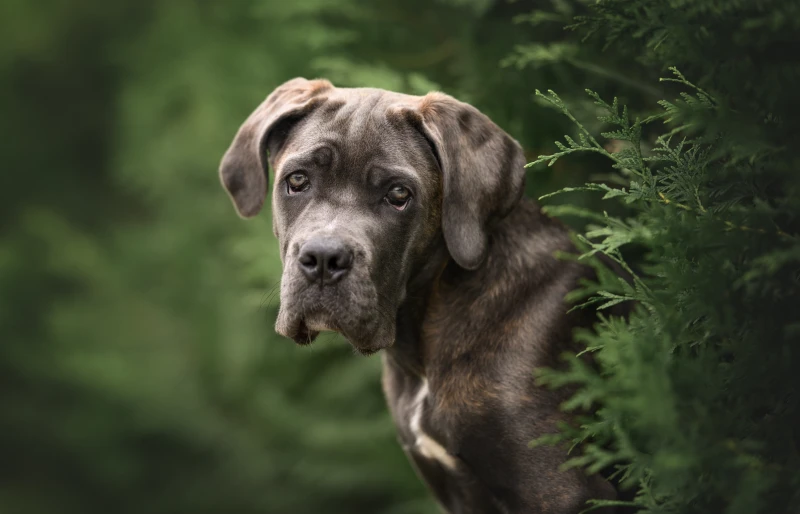
Between 15 to 18 months, Cane Corso pups will reach emotional maturity. They will understand that they have a pack, consisting of you and other dogs.
Some Cane Corso dogs will reach their full mature height by the time they’re one, while others need a full 2 years to fill out. Full-grown male Cane Corsi can weigh 110 pounds or more, while females tend to hover around the 100-pound range.
4. Mature (7+ Years)
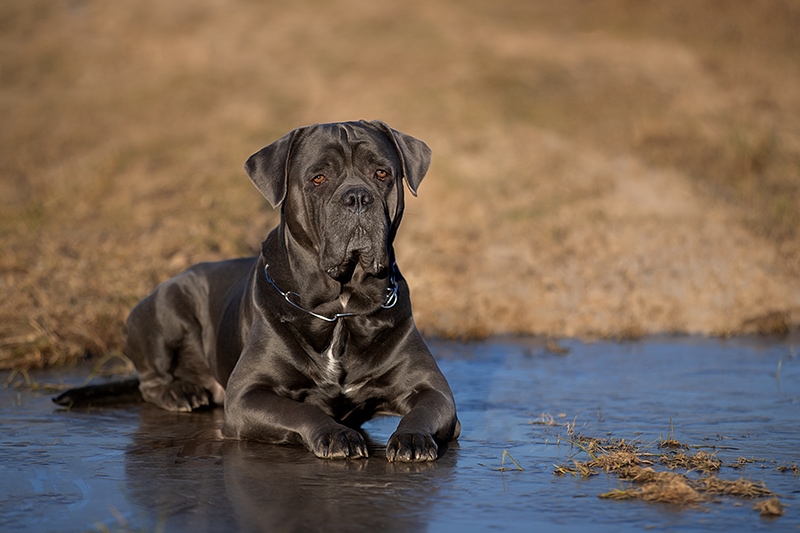
A Cane Corso is a senior when it turns 7 years old. As with humans, aging dogs may be more likely to begin displaying signs of illness or health conditions like joint issues. In addition, you may notice your pup slowing down a bit, greying around its muzzle, or suffering from stiffness in its limbs.
How to Tell Your Cane Corso’s Age
If you don’t have an exact birth date for your Cane Corso, it can be challenging to know its actual age. You’ll need to do some detective work to make an educated guess.
Examining your dog’s teeth is the most reliable way to guesstimate age. Puppies between 4 and 8 weeks have needle-sharp teeth, while those around 4 months old will have bright and clean permanents. By the time they’re 1, teeth start to show some wear through staining and plaque.
Looking at the coat may provide some guidance as well. For example, older dogs often start going a little grey or white on their muzzles or chest. Some dogs may also get cloudy eyes or poor hearing as they age.
In Conclusion
Cane Corsi are large dogs with a lifespan that rivals that of other breeds their size. Generally speaking, they are a mostly healthy breed, apart from a few potentially problematic genetic conditions. As a result, most Cane Corso dogs should live between 9 and 12 years.
Featured Image Credit: Dora Zett, Shutterstock

